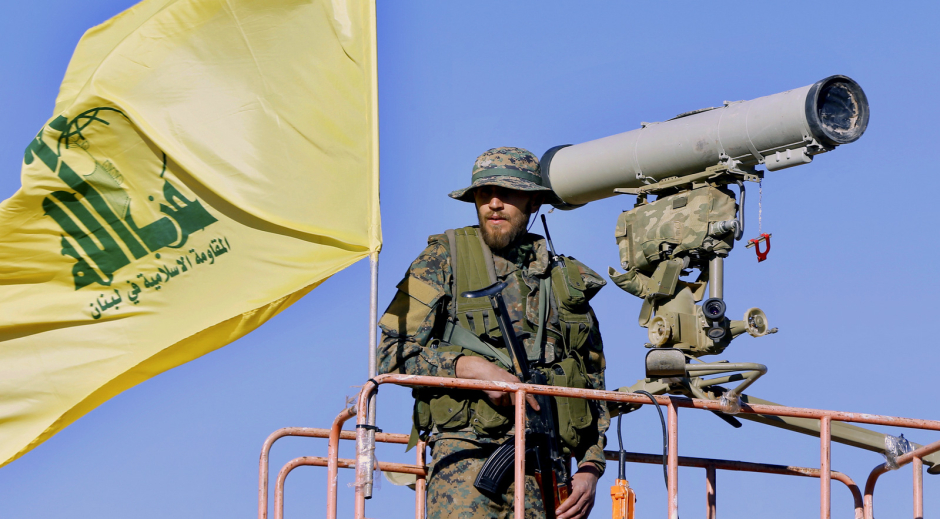Israel now says it is ready for "all-out war," with its Northern Command approving operational plans for such a scenario. Meanwhile, Hezbollah's Secretary-General warned that they would not show restraint under these circumstances. This situation has led to varying estimates of the capabilities the Lebanese group might display in case of an all-out war with Israel.
Since October 8, Hezbollah has launched daily operations against Israeli military targets and settlements, using drones, missiles, and rockets to inflict significant damage. On day 250, the resistance group published an infographic detailing 2,125 military operations, including artillery, surface-to-surface missiles, sniper rifles, machine guns, air defense weapons, drone attacks, guided missiles, "direct weapons," and engineering corps operations.
An Israeli report conducted over three years and published by Reichman University's Institute for Counter-Terrorism outlines the potential outcome of a future war with Lebanon. The report states:
After about three weeks of fire and blood, the unprecedented scale of damage in Lebanon and Israel will lead to the end of the conflict in a stalemate, amid pressure from the international community."
The 130-page report, involving over 100 Israeli senior and military officials, detailed Hezbollah's weapons capabilities based on open-source information. The report indicates that Israel's air defense systems would be overwhelmed, with Hezbollah expected to fire around 3,000 munitions daily. It also states that Hezbollah possesses around 150,000 missiles, drones, and rockets.
Despite the report's damning conclusions, it likely underestimates Hezbollah's true power. The group's Secretary General, Seyyed Hassan Nasrallah, previously stated that his armed wing had over 100,000 fighters. In his latest speech on June 19, he claimed he had previously underplayed these statistics, asserting the current number is much higher. Nasrallah added that groups from around the region volunteered tens of thousands of fighters, but Hezbollah already has more than enough, even in the event of all-out war.
Israel's assessment that Hezbollah has around 150,000 munitions has been challenged by recent comments from an official of the Iranian Islamic Revolutionary Guard Corps (IRGC)'s Quds Force. The official suggested that Hezbollah actually possesses over 1 million drones, missiles, and rockets.
Addressing Israeli surprise at the number of drones used by the group in recent skirmishes along the Lebanese border, Hassan Nasrallah stated that Hezbollah produces drones locally and that there "are too many to count." The Israeli report's idea that 3,000 projectiles would be fired daily for 21 days and consume around 40% of Hezbollah's arsenal is considered highly unlikely by other experts.
Using this understanding of Hezbollah's weapons arsenal, if a war were to last for months, as stated by Nitzan Nuriel, Israel's former Counter Terrorism Bureau director, the Lebanese group would deplete or significantly reduce its weapons stores, according to the Israeli report. However, this seems unlikely given Hezbollah's capabilities, which surpass those of Hamas and Palestinian Islamic Jihad (PIJ) in Gaza.
These groups have managed to surprise Israel and continue to launch rockets almost daily. Additionally, Israel's understanding of the number of Palestinian fighters, weapons capabilities, and tunnel systems in Gaza is notably lacking.
Commenting for the first time on the details of Hezbollah's military operations since October, Seyyed Hassan Nasrallah said on Wednesday that the early months of their activities had deprived the Israeli military in the north of both its "eyes" and "ears." This, he noted, allowed Hezbollah greater freedom to attack targets.
Nasrallah also discussed the Burkan missiles fired at Israeli military bases, stating that these missiles possess 500-pound and sometimes 1,000-pound warheads. He further remarked that in the event of war, every part of Israeli-controlled territory would come under attack from precision missiles.
He further remarked that in the event of war, every part of Israeli-controlled territory would come under attack from precision missiles. Nasrallah noted that his group would also target significant sites in the Mediterranean Sea, hinting at a repeat of the ongoing Ansarallah-imposed blockade in the Red Sea. Additionally, he stated that if Israel used Cyprus to launch its fighter jets, the government of Cyprus would be treated as a party to the war.
Another element not currently being discussed in the public domain is the ongoing psychological warfare being waged by Hezbollah and its allies against Israel. This effort would likely seek a limited war if Israel launches a military operation against Lebanon.
According to two anonymous sources who spoke to MintPress News on the condition of anonymity, all members of the regional "Axis of Resistance" now agree that a war with Israel would be in their favor. They also suggest it could provide enough pressure to extract concessions for the Syrian government.
This intelligence chatter is evident in discussions in Syria and Lebanon. It has caused confusion among Israelis, who their leaders lead to believe that a war with Lebanon can remain limited. Meanwhile, Seyyed Hassan Nasrallah warns that Hezbollah will not act with restraint should Israel invade.
Feature photo |A Hezbollah fighter stands at a watchtower at the site where clashes erupted between Hezbollah and al-Qaida-linked fighters in Wadi al-Kheil or al-Kheil Valley on the Lebanon-Syria border, July 29, 2017. Bilal Hussein |AP
Robert Inlakesh is a political analyst, journalist and documentary filmmaker currently based in London, UK. He has reported from and lived in the occupied Palestinian territories and hosts the show 'Palestine Files'. Director of 'Steal of the Century: Trump's Palestine-Israel Catastrophe'. Follow him on Twitter @falasteen47
